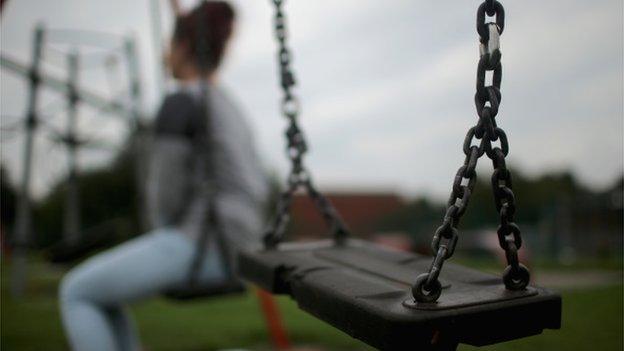Historical Institutional Abuse Inquiry: 'Widespread abuse' in children's homes
- Published
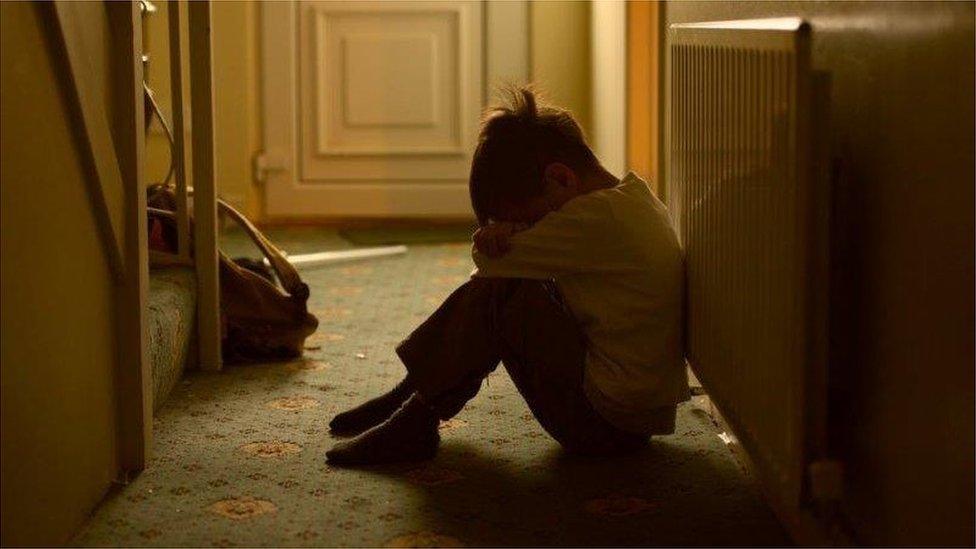
The Historical Institutional Abuse Inquiry (HIA) studied allegations of abuse in 22 homes and other residential institutions between 1922 to 1995
Children's homes run by some churches, charities and state institutions in Northern Ireland were the scene of widespread abuse and mistreatment of young residents, a report has found., external
The Historical Institutional Abuse Inquiry (HIA) studied allegations of abuse in 22 homes and other residential institutions between 1922 to 1995.
These were facilities run by the state, local authorities, the Catholic Church, the Church of Ireland and the children's charity Barnardo's.
The largest number of complaints related to four Catholic-run homes.
There was also sexual abuse carried out by priests and lay people.
The chair of the inquiry, Sir Anthony Hart, recommended compensation, a memorial and a public apology to abuse survivors.
He said a tax-free lump sum payment should be made to all survivors, including in homes and institutions that were not covered by the inquiry.
HIA: Government-funded compensation recommended for victims
He added that 12 people who had given evidence had since died and it was only "just and humane" that their spouses or children should receive a payment of 75% of the total lump sum.
The payments will range from £7,500 to £100,000.
Sir Anthony also recommended that a permanent memorial be established at Stormont and a commissioner for survivors of institutional abuse be appointed.
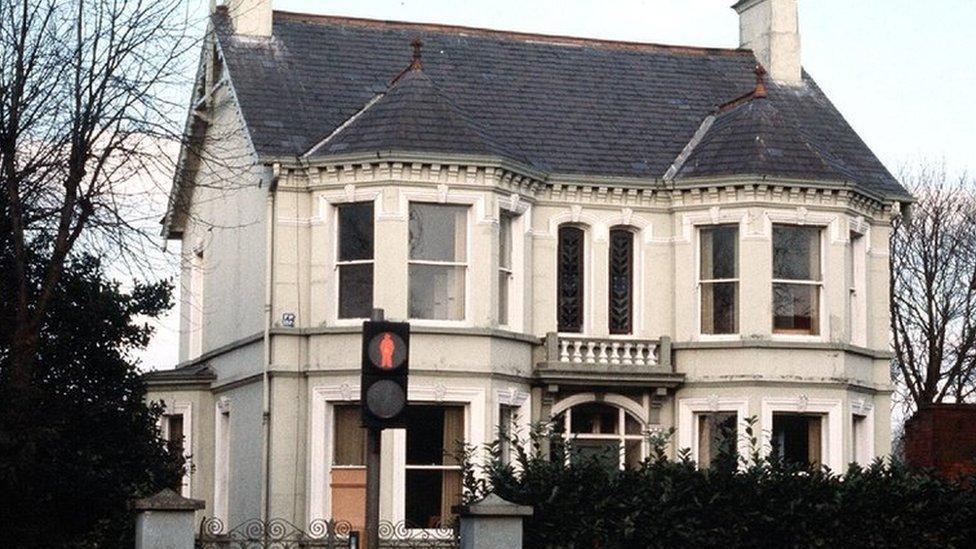
Three senior care staff at Kincora were jailed in 1981 for abusing 11 boys
Setting out the findings of his report, the retired judge said the largest number of complaints received related to four Sisters of Nazareth homes.
It found nuns had physically and emotionally abused children in their care.
Sir Anthony said it was not uncommon for children to have Jeyes Fluid, a brand of disinfectant, put in their baths.
Many of the incidents relating to sexual abuse were known by members of the clergy who did nothing to stop them.
'Deepest regret'
In a statement, the Sisters of Nazareth apologised to anyone who had suffered abuse while in their care.
"It was always the desire of the order to provide a safe place for children and when we failed on any occasion, we want to express our deepest regret," the order said.
"This has been a traumatic time for those survivors and victims who have come forward, however, we sincerely hope it has also been an opportunity to find some relief."
The HIA heard evidence from hundreds of people who spent their childhood in residential homes and institutions.

Sir Anthony Hart's recommendations
Compensation to survivors of abuse, including in homes/institutions not covered by HIA inquiry, and relatives of deceased
Permanent memorial erected at Stormont
Public apology to survivors
Establishment of a commissioner for survivors of institutional abuse
Specialist care and assistance tailored to needs of victims

A total of 493 applicants engaged with the inquiry, in one form or another, and while the majority were seen in Belfast, others were seen in the Republic of Ireland, England, Scotland, Wales and Australia.
Outlining the social and economic background to institutional care in Northern Ireland, Sir Anthony said for "many years the financial circumstances and living conditions were very poor".
HIA: 'No evidence security agencies complicit in Kincora abuse'
He said the extreme violence and civil disorder in the 1970s and 1980s did not leave those responsible for child care unscathed.
"These factors are largely forgotten today, although there were many failures. Those failings must be examined against the backdrop of the political, social and economic circumstances at the time."
He then turned his attention to the former local authority-run Kincora Boys' Home in east Belfast.
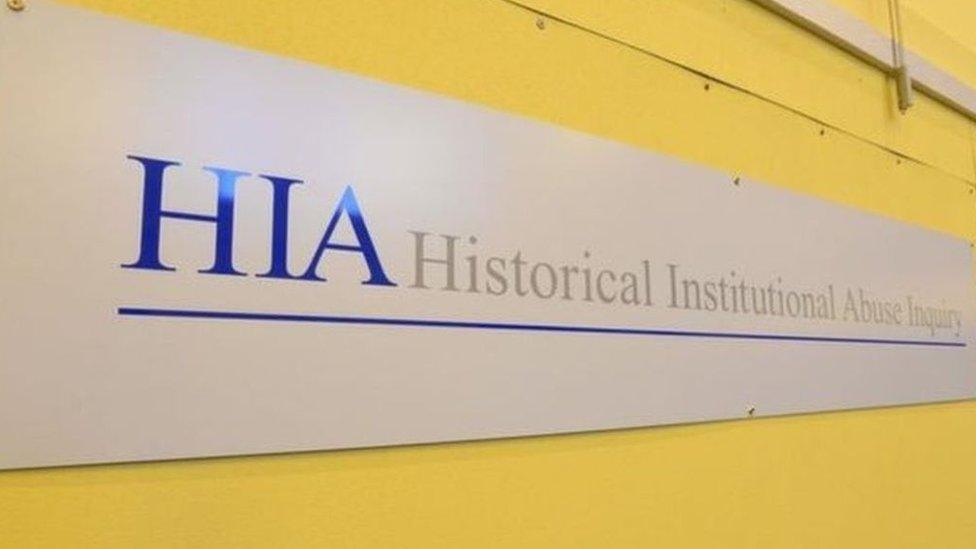
The HIA heard evidence from hundreds of people who spent their childhood in residential homes and institutions
Sir Anthony said the inquiry had "stripped away decades of half truths masquerading as facts, in relation to Kincora and what state agencies did or did not do about (the abuse there)".
"Thirty-nine boys were abused at some point during their time at Kincora," he said.
Three men, William McGrath, Raymond Semple and Joseph Mains, who were senior care staff at Kincora, were jailed in 1981 for abusing 11 boys.
Sir Anthony said when the police became aware in 1974 of complaints against McGrath, the investigation was "inept and inadequate".
HIA: 'Children raised in bleak lovelessness' in Sisters of Nazareth homes
He said a proper investigation into McGrath may have meant the children who were abused after 1974 could have been spared.
Sir Anthony said that the boys were let down by those three individuals, who committed sexual abuse "of the gravest kind" to teenage boys in their care.
He added that the majority of the young boys at Kincora between 1958 and 1980, who gave evidence, said they were not sexually abused during their time there.
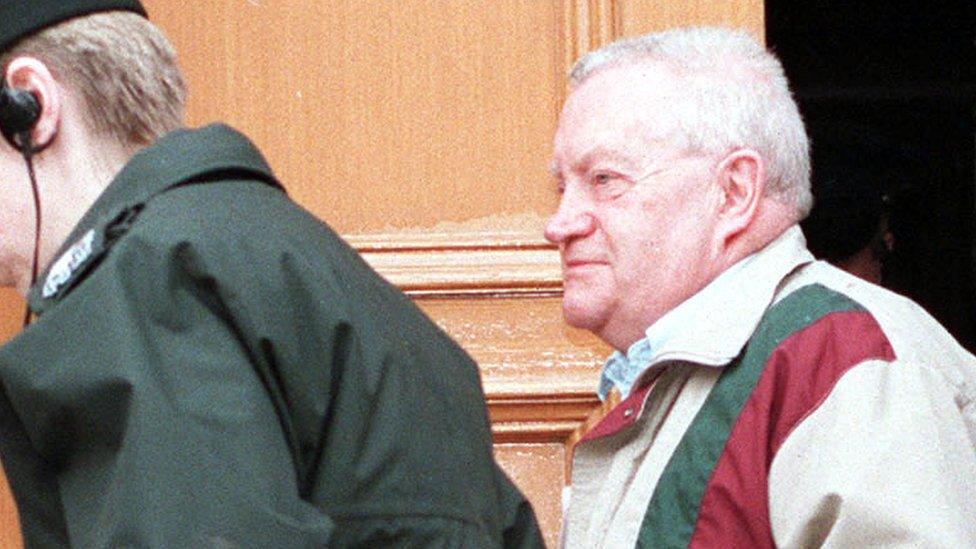
Fr Brendan Smyth was eventually convicted of dozens of offences against children over a 40-year period
Sir Anthony also found no evidence that security agencies were complicit in the abuse that took place at Kincora.
The HIA inquiry found that the Norbertine Order failed to take steps to expel Fr Brendan Smyth,, external the Northern Ireland-born cleric who was eventually convicted of dozens of offences against children over a 40-year period, from the priesthood.
The Irish Norbertines said in a statement that they recognised the "tragic harm and hurt" caused to innocent children by Fr Smyth.
Catholic church leader says reparation and outreach needed for abuse survivors
They said they "again unreservedly apologise most sincerely for the hurt and harm caused to so many young people, while also accepting that our management of the man concerned (Smyth) and the accusations presented to us was grossly inadequate."
The inquiry also heard from adults, who as children, were sent from Northern Ireland to live in Australia.
Sir Anthony said the HIA inquiry was the first in the UK to look at the child migrant scheme and said some of those who were sent away had been abused before they (left) and others believed the scheme itself was abusive.
'Widespread abuse' in children's homes
Sir Anthony said they had been unable to establish exactly how many children were sent to Australia, but at least 138, under the age of 13, were sent and, possibly as many as 144.
The head of the Catholic Church in Ireland, Archbishop Eamon Martin, "apologised unreservedly" to all those who had suffered in church-run institutions.
HIA: Abuse victims group says report is vindication
"I am ashamed and I am truly sorry that such abuse occurred, and that in many cases children and young people felt deprived of love and were left with a deep and lasting suffering," he said.
'No one would listen'
Margaret McGuckin, who has been the public face of the campaign for survivors of historical institutional child sex abuse, said it was what they had "waited for for a lifetime".
"Today we are believed. As young children we tried to complain about our abuse and no one would listen," she said.
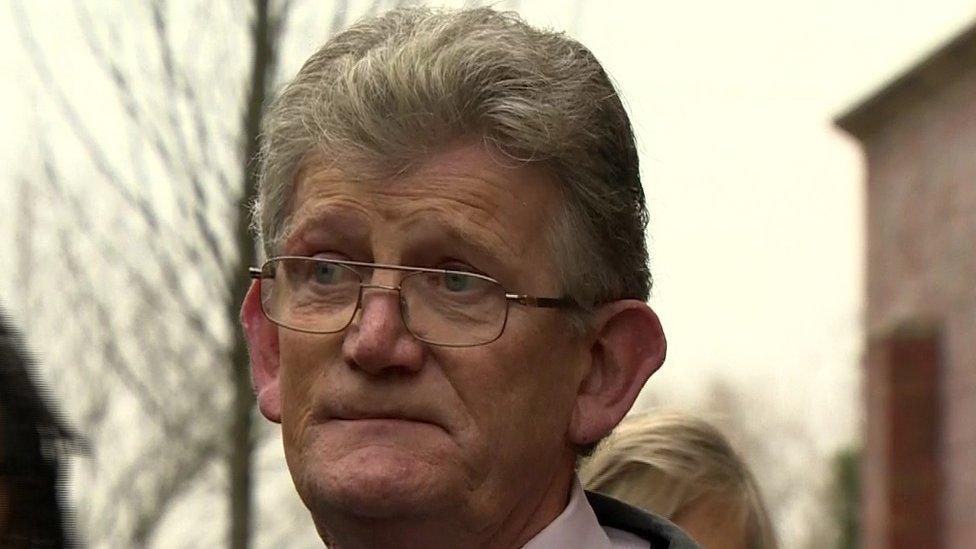
Jon McCourt urged Northern Ireland's political representatives to deliver on the HIA report and "not let us down"
"In particular, the religious orders and these holy devout Christian people disbelieved us and even bullied us more for daring to complain, today we have been vindicated."
Jon McCourt from the Northwest Survivors group in Londonderry, said Sir Anthony Hart had listened and that political representatives now had to listen.
"We want the rest of the delivery of what the HIA report entails," he said.
"Don't let us down now."
- Published20 January 2017
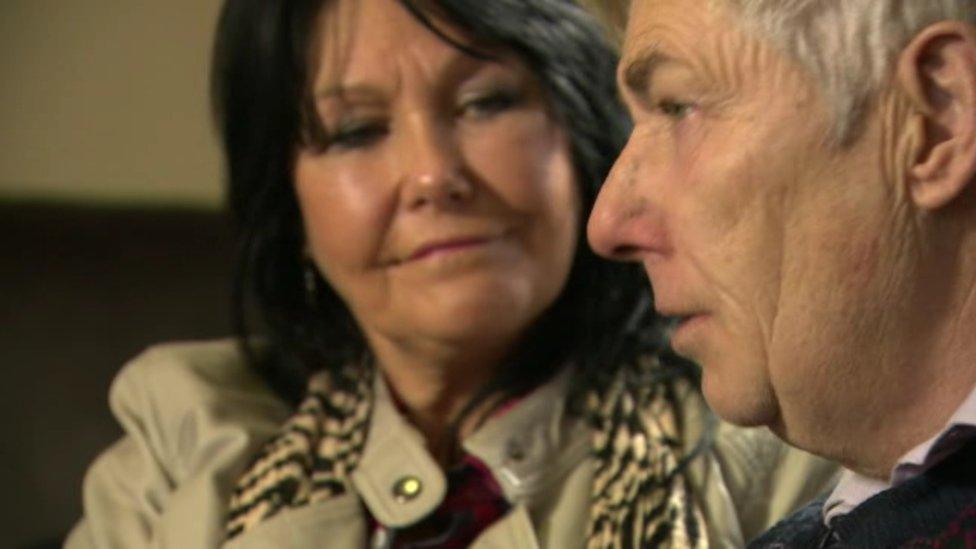
- Published20 January 2017
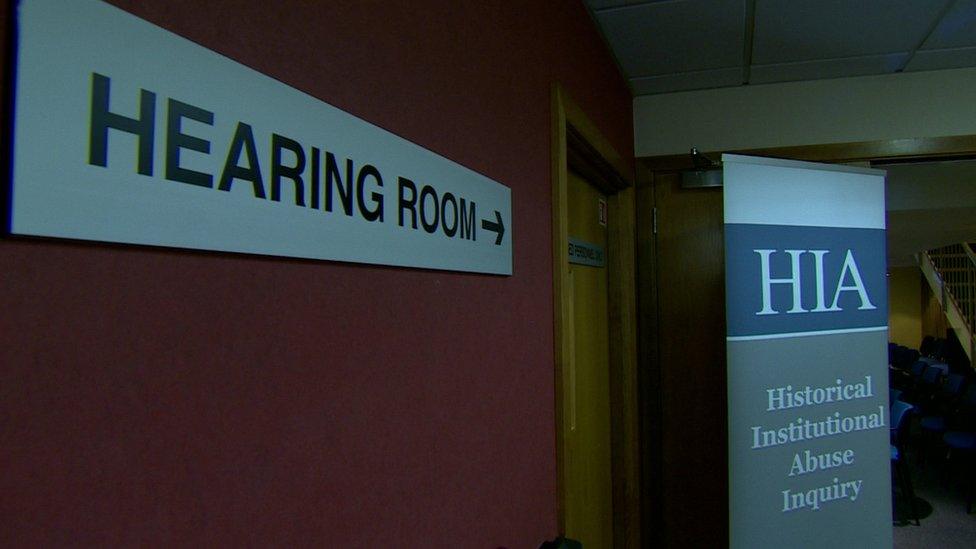
- Published7 July 2016
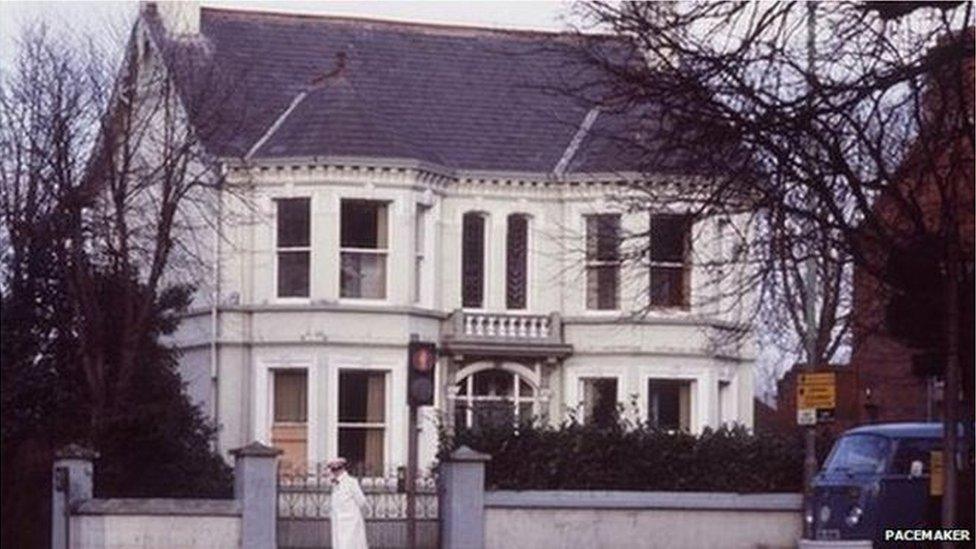
- Published8 July 2016
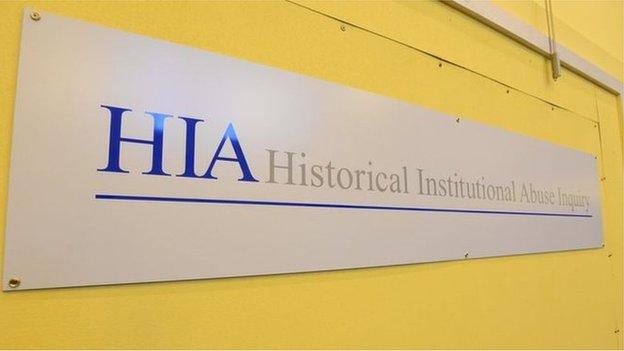
- Published28 September 2016
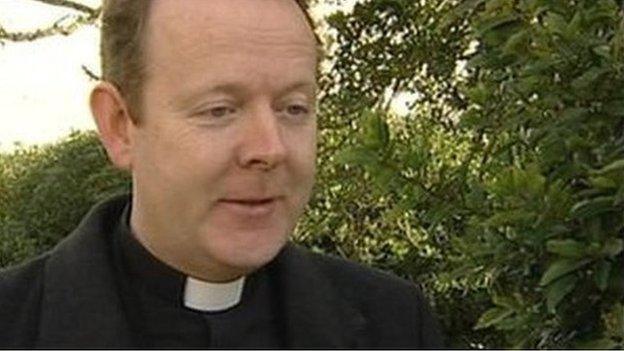
- Published25 February 2015
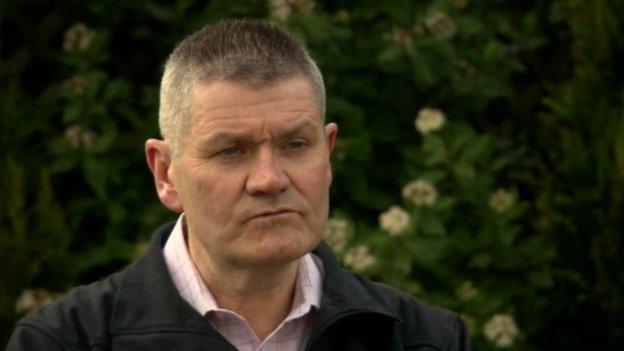
- Published4 April 2016
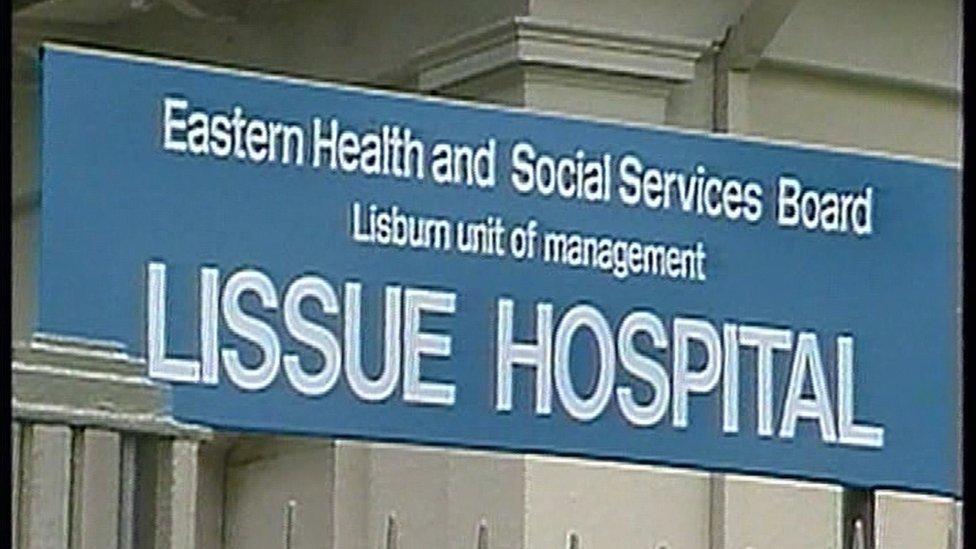
- Published17 December 2014
